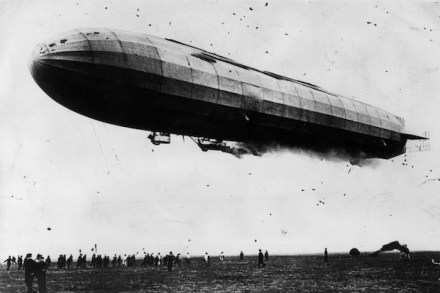The Spectator at war: The front line in London
From ‘The Zeppelin Raid on London’, The Spectator, 5 June 1915: LONDON is to be complimented on having come through its first Zeppelin raid with complete composure and little material damage. We have always assumed that the raids so far have been trial trips, and we have little doubt that the Germans mean to come














